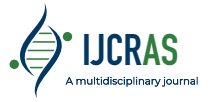| Title: LANGUAGE ORIGIN STUDIES: LANGUAGE VARIATION OF SUNDANESE AS THE AFTER-EFFECT OF MATARAM EXPANSION |
|
Author: Ana Purwitasari |
|
Abstract: This scientific study is on trace of language contact in term of lexicon, referring to lexical variation in Sundanese as Austronesian language based on politeness level. From the 17th century on, there are three kinds of speech level in Sundanese generally, e.g. loma addressing people from the same and lower rank, sedeng uttered to point out to the speaker himself/herself, and hormat as honorific style of utterance. Those speech levels widespread after Mataram Sultanate as the last major independent Javanese kingdom before Dutch arrival in Indonesia, extended its power into West Java as home to Sundanese speakers which resulted in sharing the same core vocabularies in Sundanese and Javanese. The word variation depending on politeness level could be obviously found in adjective, body part, and environment group. The other semantic fields, however, had less lexicon variation. It means, therefore, they had identical word in each kind of speech level. The term anjing, for instance, represented the meaning of dog in loma, sedeng, and hormat, whereas makan ‘eat’ in Sundanese had three lexical forms, e.g. dahar in loma style, neda in sedeng style, and tuang in hormat style. In Javanese, by contrast, dahar meant makan ‘eat’ in krama inggil or hormat style, nedha in krama or sedeng style, and mangan in loma or ngoko style. |
|
Keywords: Sundanese, Javanese, politeness level |
| PDF Download |
International Journal of Current Research and Applied Studies
An open access multidisciplinary journal, ISSN 2583-6781
